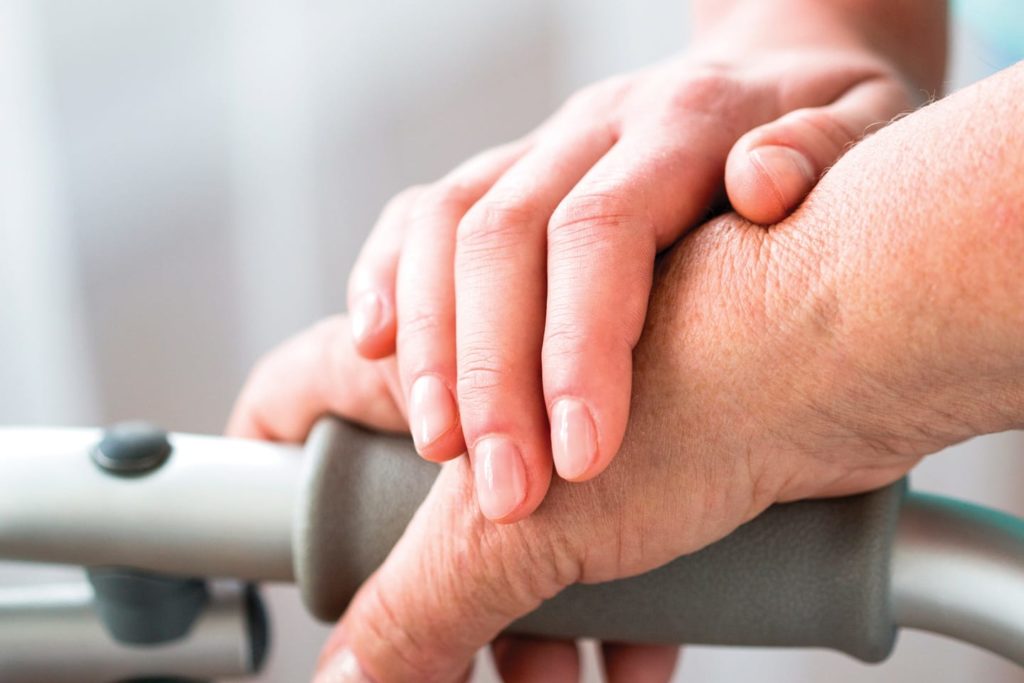The number of older adults in our country has never been higher, with those over 65 now representing about 14.5% of the U.S. population, or about 1 in 7 Americans. While these statistics mean that more grandparents are meeting the next generation of their families, they also indicate that more family members are providing care for their aging loved ones. More than 34 million Americans provide unpaid care to older adults, according to recent estimates from the AARP. If you’re facing the possibility of joining this growing demographic, here are four questions to ask yourself before taking on the role.
Question 1: Can I be my loved one’s primary caregiver or will I need to hire outside help?
In most cases, one person in the family will take on the role of primary caregiver. Before you decide to become that person, you need to assess your loved one’s needs and decide if you can handle their care on your own.
While the average caregiver spends around 24 hours per week providing care to their loved one, an estimated 25% provide more than 40 hours per week – the equivalent of a full-time job. You need to figure out where you will fall on this spectrum and whether or not caregiving is a commitment you can fit into your life.
If you believe you may eventually need outside help, make sure to research the resources available to you. These can include health care professionals, agencies, friends, and family members. Think about how your care situation could change if your loved one’s health issues become more serious. Then make a plan for what you will do if that happens, whether that be renovating your home, touring facilities, or contacting a health care provider.

Question 2: Do I have the financial resources I’m going to need to be a caregiver?
While the financial burden of caregiving is often difficult to forecast, it can be substantial. The Family Caregiver Alliance estimates that long-term caregivers lose roughly $659,139 over the course of a lifetime. This includes reduced or lost earnings, and with them, lower social security and pension. These numbers can be sobering and it’s important to take an honest look at your budget and figure out if the financial burden of caregiving is something you can handle. If your loved one requires a minimal amount of care, remember to take into consideration that their situation and yours can change, and be prepared to cope with it.
Some state programs will pay for family caregivers, provided they meet certain income and eligibility requirements. Called “consumer-directed” or “participant-directed” programs, these may help to alleviate some of the financial burden of providing care for a loved one. To find out about programs in Tennessee and Georgia, visit the National Resource Center for Participant-Directed Services at www.bc.edu/nrcpds.
Question 3: How will caregiving affect my mental and physical health?
Caregiving is often a rewarding experience but it can also be very stressful and time consuming. Many well-meaning caregivers are ill-prepared for these circumstances. The stress can bleed into other areas of life, taking time and attention away from work, family, and financial and social obligations, thus creating more tension. This chronic stress can cause all kinds of problems, from psychological distress to physical illness.
Depression is a huge problem among caregivers, with an estimated 40 to 70% of caregivers exhibiting symptoms of depression. If you find yourself feeling overwhelmed and stressed, don’t be afraid to ask for help. Hold a family meeting with those closest to you to discuss more care strategies and request assistance if you need it.
Joining a caregiver support group can also be an effective way to maintain mental and physical well-being. These groups allow you to connect with others, share valuable resources, vent frustrations, and find encouragement without judgement.
Question 4: Am I able to make time for myself and my family?
It’s easy for caregivers to get completely consumed by the needs of the person they are caring for and let all other priorities take a backseat. Before you agree to become a caregiver, make sure you are prepared to keep space for yourself and your family at the top of your priority list. If you practice yoga regularly or take walks, don’t stop. Continue to do small things for yourself like reading, cooking, meditating, or spending time outdoors.
Close friends are also crucial for caregivers, serving as sounding boards, providing emotional support, and helping caregivers stay positive. Make sure that you are able to maintain your personal relationships while caring for your loved one.


